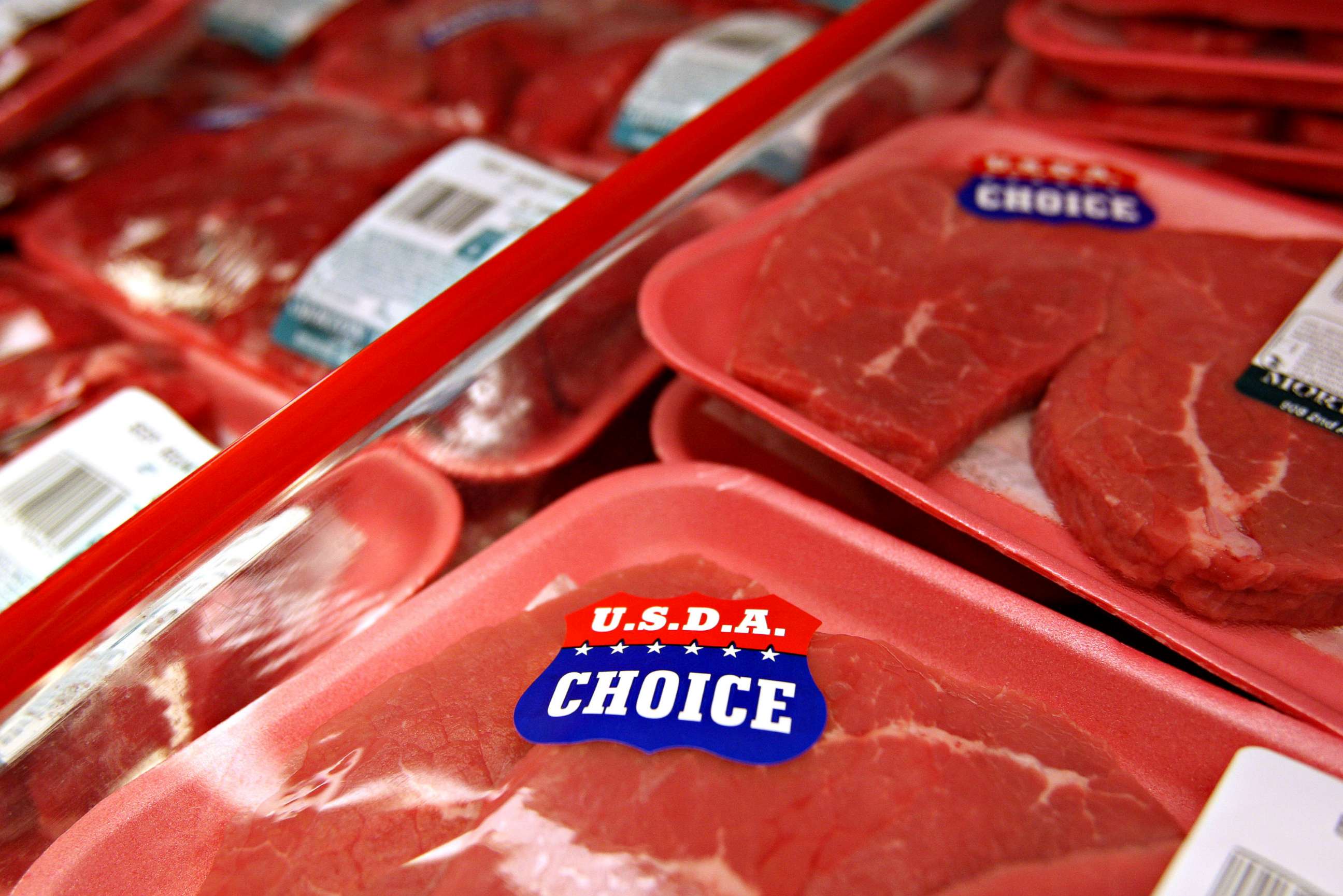Why meat with 'raised without antibiotics' labels could be misleading
The government does not have a verification system in place.
A new study found that meat labels may be misleading shoppers in search of beef "raised without antibiotics."
Labels represent an important source of information for consumers who are trying to reduce their consumption of cattle treated with antibiotics, and in so doing, push down the overall demand for livestock treated with the medicines.
Advocates of antibiotic-free meat products cite numerous potential human health risks associated excessive use of the medicines. Chief among them is the risk of breeding antibiotic resistant bacteria in cattle and other animal species that can potentially infect human populations.
In 2017, the World Health Organization recommended that the food industry halt the use of antibiotics in livestock since "over-use and misuse of antibiotics in animals and humans is contributing to the rising threat of antibiotic resistance."

However, skeptics point out that reducing use of the medicines leads to only marginal reductions in antibiotic resistant bacteria. And, it's not clear how often antibiotic resistant bacteria in animals make the jump to humans, since most livestock are not routinely screened for the organisms.
The new study, published in the American Association for the Advancement of Science journal, looked at research from George Washington University that tested urine samples from nearly 700 cattle across 312 lots and 33 USDA-certified antibiotic-free feed yards.
Laura Rogers, deputy director of the Antibiotic Resistance Action Center (ARAC) and co-author of the study, told "Good Morning America" that "antibiotics should never have been administered to the animals intended for the RWA market."
The results found at least one animal tested positive in 42% of those feed yards, and 15% of the tested products labeled "raised without antibiotics" had residues from tetracycline, an antibiotic used for disease prevention in cattle.
"This is disappointing to say the least. This is an important label claim and consumers should have confidence in it," Rogers continued, citing the number of cattle that tested positive.
The Food Safety and Inspection Service confirmed to "Good Morning America" in a statement that it is "reviewing the referenced study more closely to determine next steps as appropriate. There is no indication within the study that the meat tested is unsafe to consume."
"FSIS takes its responsibility to ensure that meat, poultry and egg product labels are truthful and not misleading very seriously. Labels bearing special claims about how an animal is raised must be approved by FSIS prior to their use in commerce. To ensure labels are truthful and not misleading, FSIS verifies documentation provided with label applications for claims like 'raised without antibiotics.' Labels may be rescinded if there is evidence that the statement is not truthful," the agency said.
Rogers said, "The good news is that while we found 15% of the cattle positive, we also found 85% did not. This means that the majority of producers are following the rules. But we need to get that number from 85% to 100%."
Co-authors Lance Price and Kevin Lo wrote that the findings "provide empirical evidence that a material portion of beef products currently being marketed with RWA labels is from cattle that were treated with antibiotics."
While only about 700 cattle were tested in the study, the total amount of beef produced at these lots constitutes about 12% of the country's RWA supply.
Based on the findings, the current mechanisms used to determine what can be labeled as "raised without antibiotics" could be flawed or lacking in accuracy. There is no federal verification system in place to ensure that meat labels are truthful or accurate. The Global Animal Partnership (GAP) has an "Animal Welfare Certified" label for meat products that are raised without antibiotics or hormones, but testing is not required.
"We also hope consumers will use their powerful voices and call for reforming of the RWA and related labels. This can easily be achieved by USDA and/or retailers requiring empirical testing before animals are slaughtered," Rogers said.
Lo and the team of researchers said this was a systemic issue beyond one farmer, retailer or restaurant.
"The USDA should establish a rigorous verification system to ensure that RWA claims are truthful and accurate, or they should cease approving these labels," they wrote in the study. "For meaningful verification, the USDA should conduct or require continuous, on-site empirical testing for antibiotics on a meaningful number of animals from every lot delivered for processing."




